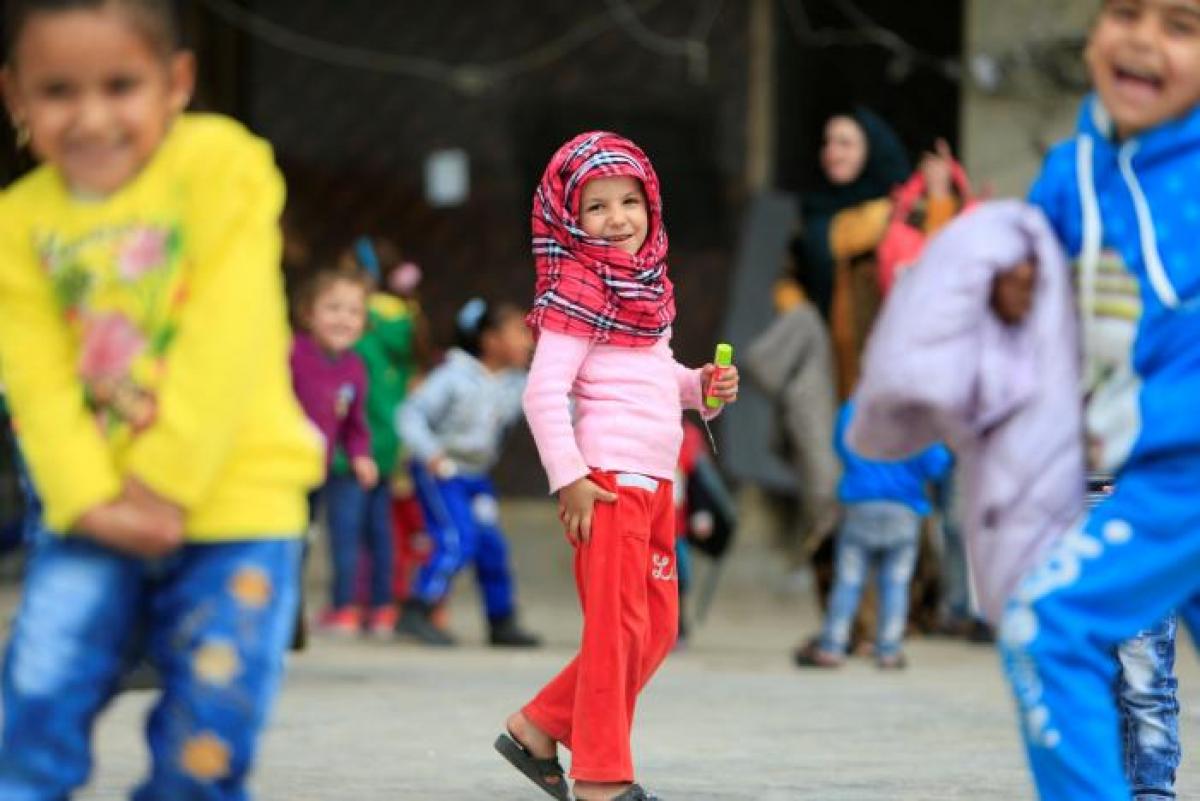Live
- IIFL Home Fin to raise Rs 500 cr
- Sensex, Nifty drift lower on profit booking
- Jagan treated cadres as ‘subordinates’, alleges Grandhi
- Mpower’s survey on edu loans
- IIP growth falls to 3.5% in Oct
- Easing food prices lower retail inflation to 5.48% in November
- Space allocation for packaging units at MSME parks on anvil
- Maha Kumbh: Yogi reviews preparations
- Gadkari on accidents: I try to hide my face in meetings abroad
- Abetment of suicide: Mere harassment not sufficient to find accused guilty says SC
Just In

Nur Hasan al Faraj\'s already slim hopes of a new life in the United States have all but died since she heard that President Donald Trump would temporarily ban refugees coming from some Muslim states.
Nur Hasan al Faraj's already slim hopes of a new life in the United States have all but died since she heard that President Donald Trump would temporarily ban refugees coming from some Muslim states.
Her flight from the civil war in Syria has taken her only as far as the southern Turkish city of Hatay near the border with her homeland.
Like other Syrians, Iraqis and Yemenis who spoke to Reuters on Wednesday, Faraj was alarmed by media reports that Trump will impose a temporary ban on most refugees and suspend visas for citizens of Syria and six other countries.
The reports have heightened fears that a new era of hostility from the West is dawning, she and other refugees said.
"This reflects the hateful point of view of America, it reflects enmity, in fact it reflected enmity to all humanity," Faraj said outside an immigration office in Hatay where dozens of refugees were queuing in the hope of obtaining a Turkish residence permit.
Asked if she would like to go to the United States, Faraj said: "If there had been such a possibility before, yes, I would like to have gone. But now, after Trump has come, no, I think I will never go"
Faraj, who wore a brightly coloured headscarf and black coat, said she hoped relatives who have already reached the United States would return "because staying there would be a terrible thing".
Abdulhalim Bekro, a Syrian man who stood nearby, was also concerned by what he depicted as a worsening mood against refugees in the United States.
"Everyone in the world knows that this decision contains hatred. This hatred is not limited to seven countries," he said.
"I definitely do not think of going (to the United States), not under Trump's administration, nor the previous, because they are all of the same mentality."
DIVIDED FAMILIES
Before becoming president, Trump proposed a temporary ban on Muslims entering the United States, which he said would protect Americans from jihadist attacks. He later said the focus would be placed on restrictions on countries whose migrants could pose a threat, rather than a ban on those of a specific religion.
Such moves could affect millions of refugees fleeing civil wars and political or religious oppression.
"I was hoping God would let me see my sister again. But now the situation became very difficult. Certainly this decision is not at all humane," said Barsha, a Syrian refugee in Lebanon whose sister now lives in the U.S. state of New Jersey.
Holders of passports from the seven countries affected already face severe restrictions on travel to the United States.
"It was difficult in the first place, and now Trump is in power it has become impossible," said Abdulhamid Zughbi, a Syrian refugee in Lebanon.
One Iraqi refugee, an engineer living in the Burj al-Barajneh camp in Lebanon, said his application to join his parents in the United States was still under consideration but that he now expected it would be rejected.The United States has taken about 12,000 Syrian refugees compared to 2.8 million who are now in Turkey, approximately a million in Lebanon and 650,000 in Jordan. More than 650,000 Syrians have arrived in Europe and requested asylum, mostly in Germany and Sweden, EU figures show.
The perceived difficulty of reaching the United States, including a long visa application process that involves extensive interviews and paperwork, has dissuaded many Syrians and people from other Middle East from even seeking to do so.
Islamist attacks in Europe and the United States, mostly carried out by Muslims already resident in the West, has boosted support among Americans for Trump's position.
But some Syrian refugees said Trump's stance had reinforced the impression among them that he is opposed to Muslims. They disputed the idea that Syrian refugees posed a militant threat.
"Trump's pretext is a fear that there could be terrorists among migrants. This is a lie," said Rami Halloum, another refugee in Lebanon.

© 2024 Hyderabad Media House Limited/The Hans India. All rights reserved. Powered by hocalwire.com







